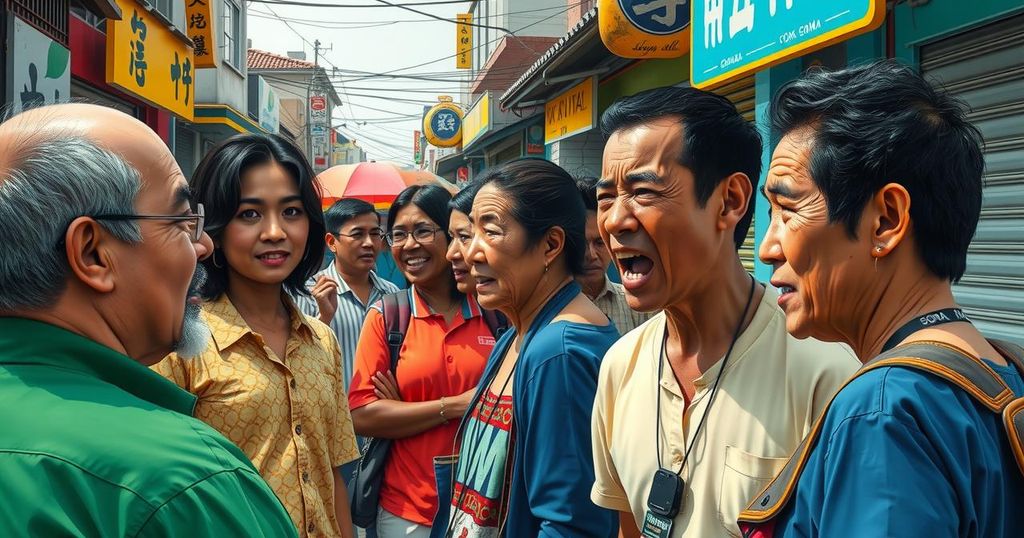Goma Residents Disheartened as M23 Rebels Boycott Angola-Led Peace Talks

Residents of Goma express frustration as the M23 rebel group refuses to join peace talks mediated by Angola, protesting European sanctions. This decision has led to a sense of hopelessness among locals, who fear that escalating tensions will undermine potential peace efforts. Civil society groups advocate for a more inclusive dialogue encompassing the complex issues affecting the region.
Residents in Goma are expressing their frustrations after the M23 rebel group announced its refusal to participate in peace talks led by Angola. This decision has intensified feelings of hopelessness among locals, who viewed these negotiations as a potential solution to the ongoing violence since M23 seized control of Goma city. The protests against the European sanctions imposed on the group have been criticized by the community as an inappropriate response to the situation.
The talks convened by Angola were anticipated to provide a platform for dialogue, especially for those who have sought refuge due to the conflict. However, the M23 rebels, in a statement released just before the negotiations, stated they would boycott the discussions as a form of protest against sanctions affecting their leaders. Lawrence Kanyuka, the group’s spokesperson, lamented that these sanctions were sabotaging peace endeavors in the Democratic Republic of Congo.
Goma residents are disappointed and confused, viewing the M23’s actions as unjustified. Local voices, as reported by Radio Okapi, highlighted that sanctions should not prevent participation in talks aimed at reconciling with the Congolese state. The expectation is for those involved in mediating the discussions to ensure the M23 returns to the negotiation table for the benefit of peace.
In addition, local civil society organizations are advocating for their inclusion in the dialogue, emphasizing that the region’s issues extend beyond the M23 situation and involve deep political, economic, and social complexities. Danny Singoma, from the Network for the Promotion of Democracy and Economic and Social Rights, noted that the security crisis in the DRC entails various dimensions and affects other regions significantly.
Reports indicate that the Congolese government delegation has arrived in Luanda to engage in the negotiations mediated by Angolan President João Lourenço. The Angolan government has not yet officially responded to the M23’s decision to boycott the talks, raising further concerns about the potential for conflict resolution in the area.
The refusal of the M23 rebel group to participate in Angola-led peace talks has left many Goma residents frustrated and disillusioned. The community views the group’s boycott in response to European sanctions as counterproductive, undermining peace prospects. Moreover, civil society’s call for broader participation in discussions indicates a recognition that the region’s challenges are multifaceted. The outcome of the negotiations remains uncertain as the Congolese government engages in talks, with the hope that all parties will be represented to foster lasting peace.
Original Source: eastleighvoice.co.ke








